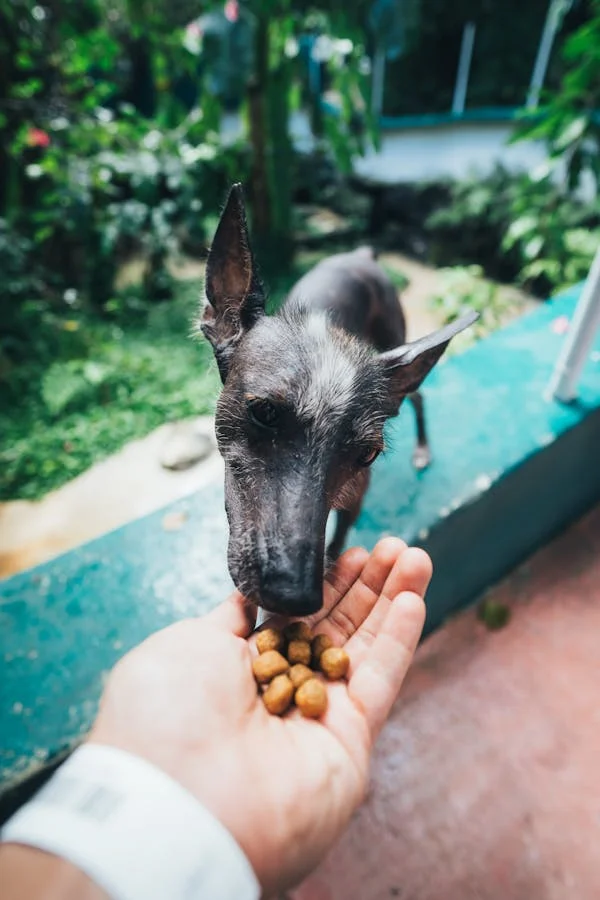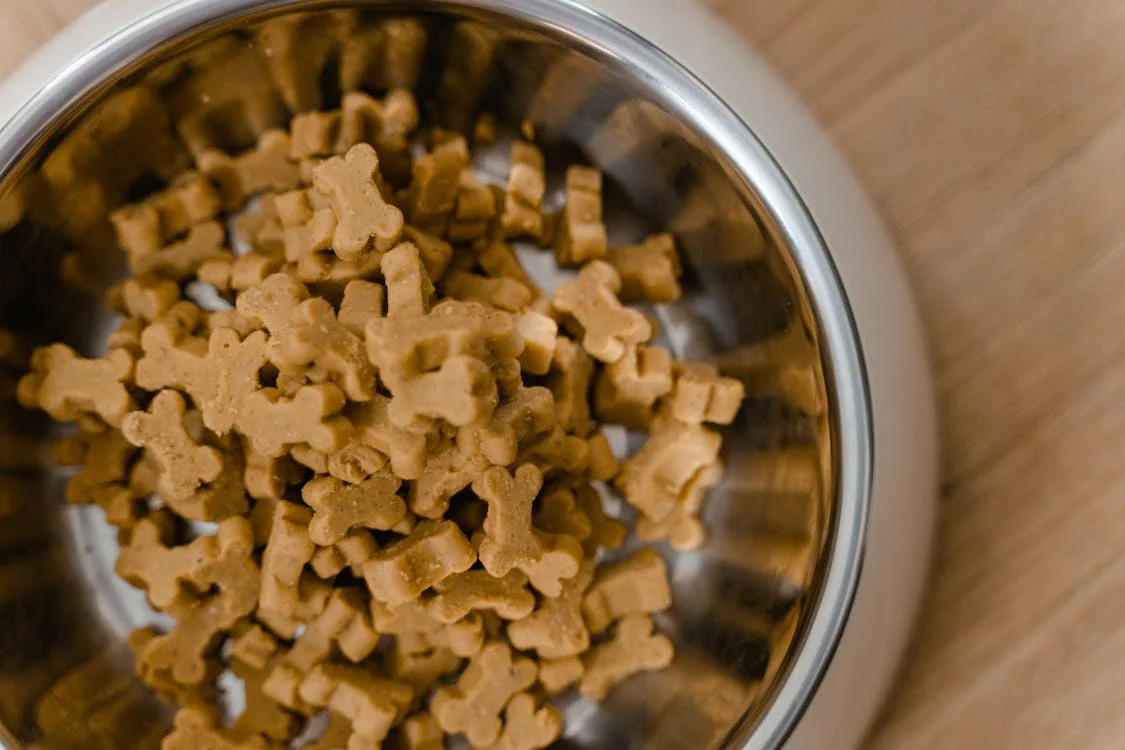This guide will break down the mysteries of how much is 5kg in Dog Food.
The first time I brought fuzzy little Dog home, I suddenly felt overwhelmed. As a new dog parent, everything was so unfamiliar – from potty training tips to toy safety standards.
But nothing caused me more stress than trying to decipher his food bag labels. Kilograms? Daily grams? I had no idea if I was feeding my new furry friend enough.
That’s when I realized it was time to get to the bottom of dog food packaging labeling once and for all. If I wanted to be a responsible owner, I needed to understand exactly how much food dog really needed each day.
This article will break down how much is 5kg in dog food really equals and provide guidelines on how much to feed dogs of different sizes based on weight.
How much is 5kg in Dog Food?
Let’s start with the basics – what exactly is 5kg of dry dog food in more tangible measurements? First, 1kg is about 2.2 pounds. So 5kg is equivalent to roughly 11 pounds of food.
To convert this in to cups, we need to understand, the density of dry kibble. On average, dry dog food weighs in at around 0.6 grams per cubic centimeter. A standard cup holds about 30ml, which is equal to 28 grams.
Taking the total weight of 11 pounds and dividing by 28 grams per cup gives us just over 18 cups of food contained in a 5kg bag. That visualization of “18 cups” is much more comprehensible than just seeing “5kg” on the label.
Now owners will know that a 5kg bag will likely last 2-3 months for most dogs, depending on size. The takeaway is to do the math conversions – it takes just a few minutes but pays off in clear understanding of how much food you’re really getting.
| Meal Type | Food Items | Recommended Timing |
| Breakfast | High quality kibble | Give within 1 hour of waking up |
| Bone or safe chew | Great as an additive to kibble | |
| Snack 1 | Low-fat Greek yogurt | Mid-morning |
| Veggie mixes like carrots, green beans | Limit to 10% of daily intake | |
| Lunch | Mix of kibble and canned food | Noon |
| Snack 2 | Freeze dried meat snacks | Mid-afternoon |
| Dinner | Bone or raw meat/fish | Evening, 2-3 hours before bed |
| Treats | Training treats | Limit to 10-15 treats/day for training |
| Dental chews/sticks | 20-30 mins after meals for dental health | |
| Weekend | – Boiled egg or pumpkin | As occasional weekend enrichment |
| Special | – Chicken or beef meatballs | Monthly “date night” meal |
The emphasis is on high quality kibble at regular mealtimes with added protein, veggies and healthy snacks/chews spread throughout the day. Bones and raw food are great occasional additions when supervised. Proper timing also helps with digestion.
How Much Should a 60 Pound Dog Eat?
For 60 pound Dog, the general guideline is large dogs over 50 lbs, means your dog should eat 1-1.5 cups per meal, split into two feedings per day.
Over a month that equals about 60-70 cups of food for him. Every dog is different though, so I pay attention to Charlie’s shape and activity level too.
How Much Should a 50 Pound Dog Eat?
For dogs in the 40-50 pound range, it’s recommended that they must have to eat 1-1.5 cups of dry food per day. That total should be split into two meals, so gets half in the morning and the other half in the evening.
Doing the math, that works out to 2-3 cups of dog food each day. I like to measure it out into his bowl to make sure he’s getting the right amount.
I never really thought about it in actual cup measurements before, but breaking it down this way has been so helpful.
It gives me a better idea of how long a big bag of food will last us and helps me keep an eye on Rocky’s weight to make sure he stays nice and healthy at his 50 pound size.
How Much to Feed a Dog by Weight Lbs
To summarize appropriate daily amounts by weight:
Under 20 lbs: 1/2 – 1 cup per day
20-50 lbs: 1-1.5 cups per day
Over 50 lbs: 1-1.5 cups twice daily
Always break total daily feedings into two meals. And try measuring in cups if possible for clarity versus gram or kilogram guidelines on bags. With some simple calculations, owners can feed their canine companions precisely based on size and needs.
How Much Food Should My Dog Eat?
With practice, conversions to cups and guidelines for different weights, dog owners will gain confidence providing the right amounts of nutrients.
Remember, all dogs have individual requirements – check with your vet if ever unsure. A little know-how goes a long way in giving our furry friends the healthy homemade they need.
Don’t be afraid to break out a calculator when decoding dog food labels. Taking the extra few minutes to crunch the numbers into familiar cups and pounds makes the feeding guidelines so much clearer. And it prevents me from accidentally running out of Charlie’s grub halfway through the month.
How Much Does a Dog Food Cost?
One of the most common questions new dog owners have is how much they can expect to spend on feeding their dog each month. Is it too costly to have a dog in home?
Well, the cost of dog food varies depending on the type and brand you buy, as well as your dog’s size, age and activity level. However, here are some average costs to help budget for your pup’s grub.
Dry Kibble

Dry kibble is generally the most affordable dog food option. On average, owners can expect to pay:
Mini breeds (1-10 lbs): $10-15 per month
Toy/small breeds (11-20 lbs): $15-25 per month
Medium breeds (21-50 lbs): $20-40 per month
Large breeds (51-90 lbs): $40-80 per month
Giant breeds (over 90 lbs): $80-150 per month
High-quality brands like Blue Buffalo and Orijen will be on the higher end of these ranges. Store brands like Pedigree are more wallet-friendly starting at around $15-30 per month.
Wet Food
Canned or pouch wet foods provide more moisture but also carry a higher price tag:
$2-3 per 13-ounce can (most brands)
$1.50-2.50 per 3-ounce pouch
Expect to feed 1-3 cans or pouches daily depending on your dog’s size
Plan for $50-150 per month for wet food
Homemade Food
A homemade diet prepared under vet guidance works out to roughly $1-2 per pound. Most dogs require 1-2 pounds weekly, equating to $30-80 per month. This option involves more time but can be quite affordable.
As you can see, you should budget $30-150+ per month for your dog’s dietary needs depending on their habits and nutritional requirements. Store brands keep costs down while premium foods provide added nutrition.
Conclusion on How much is 5kg in dog food:
When next time you find yourself scratching your head over grams or kilos, remember, a little math can go a long way in understanding how much is 5kg in Dog Food. With the right conversions, grocery shopping for Fido will be a whole lot less bewildering!

This is such a valuable resource. I’ve learned so much from this post, and I appreciate the practical advice you’ve shared.
This is very practical advice.
[…] puppies can eat Primal dog food really depends on the individual puppy, their age and development stage. Here are some thoughts on […]
[…] dog food is formulated to meet dogs’ […]
[…] best to add chia to your dog’s regular food rather than as a snack on its own. Puppies, elderly or sick dogs may not be suitable candidates for […]
[…] consult your veterinarian. Allergies to seaweed are rare, but being proactive in monitoring your dog’s health after introducing a new food can help catch any issues […]